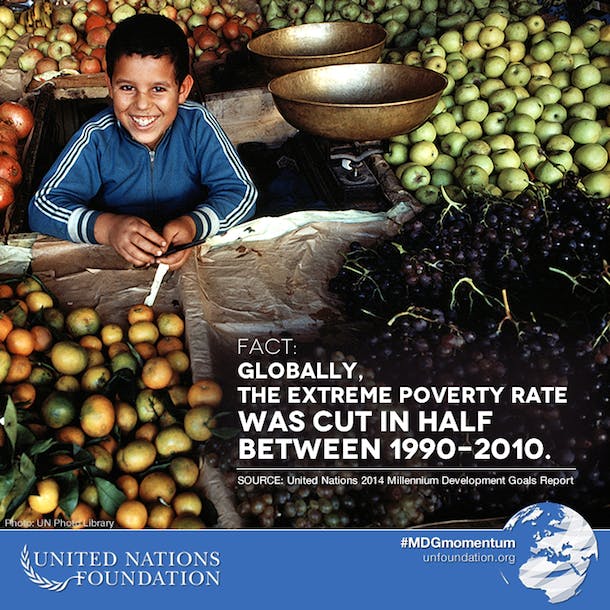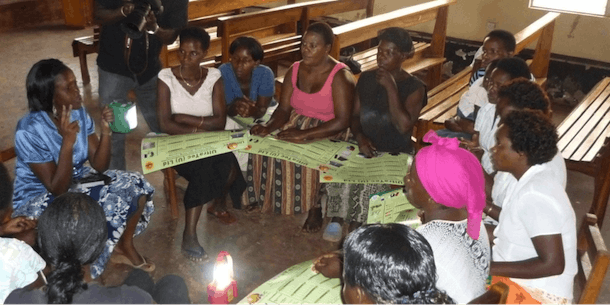Our blog series “5 Days, 5 Facts, 5 Reasons to Act” concludes today with a focus on global progress in reducing extreme poverty.
FEATURED FACT:

United Nations Secretary-General Ban Ki-moon has called the Millennium Development Goals “the most successful global anti-poverty push in history.”
According to the UN, in 1990, close to half of the people in developing regions lived on less than $1.25 a day, and by 2010, only 22% of the developing world was living below this poverty line. This is good news – but the story is far from over because more than 1 billion people continue to live in extreme poverty.
As the UN and partners work to end extreme poverty, one solution to power brighter futures deserves more attention: access to modern energy services.
Right now, more than 1.2 billion people have no electricity, and an additional 1 billion only have power intermittently.
Access to reliable and affordable energy opens up opportunities for families living in extreme poverty to earn more income, improve education and health care, and ultimately break the cycle of poverty. Here’s how: Children benefit by having light to study by at night; small entrepreneurs have reliable power to extend their business hours after sundown and earn more income; and communities benefit when their health care centers have the power they need to run medical equipment, refrigerate vaccines, and provide lighting for needed medical procedures at night.
Access to reliable and affordable energy has particular relevance for women, as they may be most affected by energy poverty. Without access to modern energy services, women in rural communities spend hours searching for wood to use for cooking, walk miles to fetch water, and suffer from respiratory and other illnesses from inhaling smoke from cooking with firewood and using kerosene and other polluting sources of light.
Clean, sustainable energy solutions save lives and enable women in poor, rural communities to further their education or earn an income.
The UN’s Sustainable Energy for All initiative supports universal access to modern energy services by 2030, in addition to increasing energy efficiency and global renewable energy use. In support of this initiative, the UN Foundation’s Energy Access Practitioner Network has brought together some 2,000 members that are collectively delivering clean energy services to millions of people annually across 170 countries. Some of the members of the Network specifically support women’s entrepreneurship, helping local women become the providers of energy solutions in their own homes and communities.
Here is one example of their transformative work.
FEATURED STORY:

Photo credit: Solar Sister
Solar Sister empowers a network of women entrepreneurs to expand access to solar energy in multiple countries in sub-Saharan Africa. Solar Sister provides women with a “business in a bag,” giving them access to solar technology to sell in their communities, as well as training and marketing support. These women become their own bosses, earning money while bringing solar electricity to their communities.
According to Solar Sister, these women can double their household income through their solar business. To date, Solar Sister has supported 1,200 women entrepreneurs and helped 200,000 people unlock the many benefits of solar power.



 View All Blog Posts
View All Blog Posts